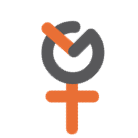Knowledge
Interestingly, this is a domain in which it is possible to say that the situation did improve since its first assessment by EIGE (still, all that glitters ain't gold: talking about the problem of the gender-based segregation, for instance, we can say that it remains largely untouched and unchanged, as the under-representation of women in different areas is able to show): this domain is based on the collection of data related to the equal access to education and
training between women and men, which includes facts such as the lifelong learning provided for both or the attainment of specific levels of education of both.
Consequently, the two sub-domains will logically be represented firstly by the “educational attainment and segregation”, which, as mentioned above, is still a strong feature in the EU market, and it represents a concern for policy makers for two basic reasons: it is the main and obvious motif for the existence of the wage gap and it is economically inefficient, since it prevents able and talented people who could work well and bring about improvement of a theoretical and practical nature from moving into sectors that would satisfy them more than the open ones.
“Lifelong learning” represents the second sub-domain, whose definition is provided by the European Commission and reads: “the share of the population aged 25-64 who stated that they receive formal or non formal education or training in the four weeks preceding the survey”.
Lifelong learning, therefore, comprises all learning activities (formal, non-formal, informal or on a ongoing basis) whose main goal is the improvement of one's own knowledge, skills, and competence.







